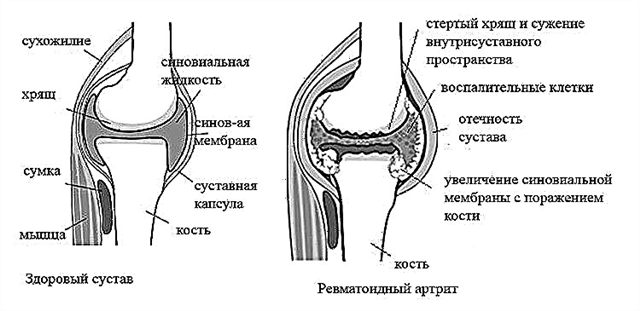Angina (tonsillitis), like other infectious diseases of the ENT organs, develops against a background of reduced immunity. Unfortunately, under the influence of nicotine, the immune system performs its functions much worse than normal. Therefore, people who smoke are much more likely to catch colds than non-smokers.
 Of all the colds in the nasopharynx, the most common among smokers is angina. Of course, smoking is not the cause of the disease. This is facilitated by the activation of pathogenic bacteria or viruses under the influence of negative factors: hypothermia, throat injury, cold food, allergies, contact with an infected person.
Of all the colds in the nasopharynx, the most common among smokers is angina. Of course, smoking is not the cause of the disease. This is facilitated by the activation of pathogenic bacteria or viruses under the influence of negative factors: hypothermia, throat injury, cold food, allergies, contact with an infected person.
You should not believe someone who says that you can smoke with a sore throat. Smoking is one of the predisposing factors that contribute to the development of tonsillitis.
Why do you smoke when you are sick?
Smokers with many years of experience are addicted to nicotine, and just like that, even for a while, it is difficult for them to readjust and quit the bad habit. The habit has been consolidated over the years, the very process of smoking is important in it, as a psychological factor, so a day without a cigarette will seem unbearable to a smoker. Nicotine from each smoked cigarette poisons the body, and over and over again fixes the addiction.
The same psychological factor plays a cruel joke with the addict. A person without a cigarette begins to get nervous, panic can seize him, sometimes signs of inadequacy in behavior appear. But as soon as he lights a cigarette, especially after a break, he feels significant relief both psychologically and even physically. Nicotine, like a drug, can cause euphoria, which is why painful sensations are dulled for a while and the patient seems to be recovering.
In fact, everything is much more complicated. The feeling of relief is only apparent. Nicotine irritates the pharyngeal mucosa, provokes a painful cough reflex, and the state of imaginary relief changes abruptly to worsening.
Why do smokers get sick more often?
Each puff of cigarette smoke is a powerful blow to the immune system and the body as a whole. Not only the respiratory organs are affected, but also the vessels, especially the capillaries of the lower extremities, heart, liver, blood, brain. It is no secret that there are carcinogens in cigarette smoke, which, entering the body, are carried by the blood to all organs, including the tissues of the nasopharynx. Smokers' blood is poisoned with toxins, the load on the heart, brain, urogenital system increases with each cigarette smoked.
In addition, people who smoke go out for a smoke break in the cold air, often without clothes, believing that nothing will happen in a few minutes. But it doesn't take long to get sick. Cold air and poor immunity lead to the development of acute tonsillitis.
Why is it not recommended to smoke for angina?
Smoking is, in principle, unhealthy, but is it possible to smoke with angina? In addition to nicotine, a cigarette contains about 200 harmful substances. When tobacco is smoked, all these substances enter the blood and tissues, leading to the death of healthy cells. To restore dead cells at least partially, the body must work at the limit of its capabilities. Smoking a cigarette with inflammation of the respiratory system slows down the regeneration process, weakens the body and complicates recovery.
Acute tonsillitis is accompanied by a sore throat, severe pain when swallowing, plaque or suppuration on the tonsils. Why is smoking not recommended for angina? Because during this process the following happens:
- severe irritation of the nasopharyngeal mucosa with harmful tobacco smoke;
- destruction of the integrity of the nasopharyngeal mucosa;
- increased pain;
- increased dry mouth, which contributes to a more intensive reproduction of pathogens;
- slowing down the cleansing process of the tonsils;
- slowing down the removal of purulent discharge from the tonsils and their timely evacuation; increased cough reflex.

Many smokers hope that filters in expensive cigarettes trap harmful components and prevent them from entering the lungs. In fact, this is not the case.
No filter removes harmful substances from tobacco smoke that enters the lungs
Treatment for sore throat and smoking
Can I smoke with angina? No doctor will give an affirmative answer. With the bacterial form of tonsillitis, antibacterial and symptomatic drugs are prescribed. Of course, they will work even if the patient smokes. However, it is much more difficult for smokers to treat themselves. The body during a sore throat is very weakened, immunity is reduced. When prescribing treatment, doctors try to increase the defenses of the patient's body through drugs, proper nutrition and the correct daily regimen. But smoking another cigarette, a person weakens his immunity, thereby aggravating the course of the disease and delaying the final recovery. After a cigarette, medical rinsing of the nasopharynx is ineffective, just as smoking after medical procedures significantly reduces or negates their effectiveness.
On average, a non-smoker suffers from a sore throat for a week or two. A person who smokes is sick for a week longer.
If the patient gives up cigarettes at least for the duration of the treatment, then this will significantly accelerate the recovery.
 Most often, patients with acute tonsillitis do not quit smoking because it is more difficult for them to endure withdrawal symptoms than the disease itself
Most often, patients with acute tonsillitis do not quit smoking because it is more difficult for them to endure withdrawal symptoms than the disease itself
That is why, even for a short time, patients cannot give up smoking. Some doctors strictly forbid their patients to smoke during illness. Sometimes people with great willpower tie up with their bad habit during the treatment process.
Is secondhand smoke harmful for angina?
Passive smokers suffer no less than active smokers. Passive smoking is especially dangerous for children, pregnant women, nursing mothers, for people with chronic diseases. In both active and passive smokers, the blood is saturated not with oxygen, but with carbon monoxide, which is the main component of tobacco smoke. Carbon monoxide combines with hemoglobin to form a dummy molecule (carboxyhemoglobin). This molecule does not transport the oxygen needed by the cells. During a cold, the cells do not receive enough oxygen, while smoking in any form aggravates the disease.
Being in a smoky atmosphere, non-smokers are poisoned by harmful substances that make up tobacco smoke, just like smokers
What does smoking lead to?
It is no secret that smokers live shorter lives than non-smokers, and they get sick more often and more severely. Oddly enough, but angina is a great reason to quit the bad habit of poisoning your body with carcinogens and heavy resins. After all, this habit has dire consequences.
- Spasm of the coronary vessels leading to heart attacks.
- Hypertension, vegetative-vascular dystonia, strokes.
- Chronic tonsillitis, chronic bronchitis, obstructive bronchitis, chronic cough, chronic pneumonia.
- Emphysema of the lungs.
- Lungs' cancer.
- Obliterating endarteritis.
- The proliferation of fibrous tissue in the larynx, which leads to a narrowing of the glottis and a change in voice.
- Destruction of tooth enamel.
If the smoker stops smoking during the illness, then abundant unsweetened warm drinks and gargling with saline will help to alleviate his condition.



